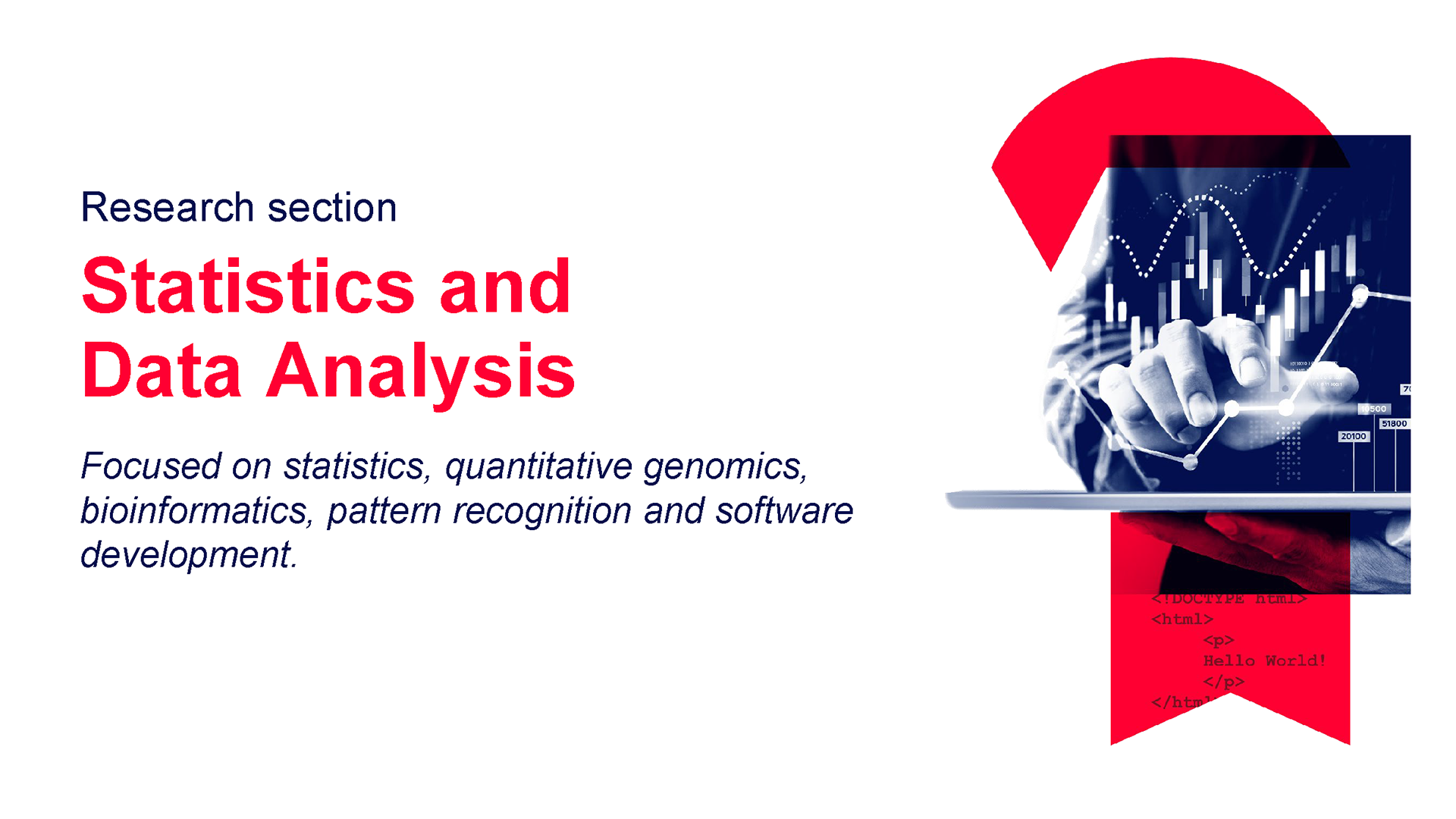Section for Statistics and Data Analysis
The Statistics and Data Analysis section has special emphasis on statistics, quantitative genomics, bioinformatics, pattern recognition and software development. The section is dedicated to supporting other departments at DTU and its external partners with skills, knowledge, and consultancy within the field of statistics and data analysis - including biological data.

DTU Compute has a long history of statistical consultancy and research collaborations with various DTU departments, other universities, and external partners. The section formalizes these collaborations to enhance research and consultancy services at DTU. With strong ties to research groups in cognitive systems, image analysis, and scientific computing, the section is a key player in both the Danish and international statistics arenas.
The section aims to strengthen connections to statistics, bioinformatics, and computational biology activities across DTU and promote high-quality statistics in Public Sector Consultancy. DTU Compute also provides internal and external statistical consultancy services.
